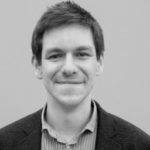
The World Kitchen Team were involved with us from the start after Gavin introduced me to Fay Young.
Working with the communities in Leith and Edinburgh, Fay (http://www.leithopenspace.co.uk/) had plenty of experience supporting events for the wider community. She was very interested in the issues that we as a research team were investigating and we had plenty to talk about regarding religious identities, religious conversion and the kinds of barriers around religion that keep people apart. The rest of the team were as interested in participating Fay reported. They were happy to cook us a full meal on the evening. But what we didn’t want was for dinner to be served as a mere add on at the end. How could we ensure that the meal remain an integral part of the evening?
Our conversations turned inevitably to the part that food and food choices often play in social interactions. To what extent do our religious faiths determine what we eat or do not eat? Or even who we choose to eat with or avoid? And what statements about food do we make based on assumptions regarding someone’s faith? We talked about how we could get participants and the world kitchen team thinking about this further. What could they cook (http://www.leithopenspace.co.uk/headlines/faith-and-food-taboos-what-can-we-cook/#more-2724)? This is what we came up with…
The team would prepare dishes that drew attention to foods that were allowed and foods that were taboo: for instance, halal meats, kosher dishes, vegetarian options and so on. Fay also drew our attention to foods that were considered ‘temptations’. Foods were not just taboo after all as she says in her own blog in preparation for this event (http://www.leithopenspace.co.uk/headlines/taboos-temptations-and-a-little-eves-pudding/). The team even set themselves up a few challenges, could Rami cook his favourite dish without using onion and garlic, avoided by some sections of the Hindu community? We also discovered to our surprise that some religious faiths that we had assumed had no taboos, did in fact have taboos in some parts of the world. Meet Alice, who talks about lamb as taboo in the Christian communities of Zimbabwe: if the Bible speaks of Christ as the ‘lamb of God’ how could Christians eat lamb? Meena had several anecdotes about the challenges of cooking for Muslim family and friends, herself a Hindu married to a Muslim. See what the cooks say about food taboos and religious identities.
Last, Matthias prepared a fantastic, fun food quiz. He got participants thinking further about how images and words linked with certain foods conjure certain associations in our minds. How right were our assumptions that some foods were ‘safe’ to serve anybody? And why were some apparently innocuous ingredients prohibited by some religious traditions? There were a few surprises waiting for us!




 Poetry is made of language and we live, and move, and have our being in language. Our thoughts, our hopes, our loves, and our faiths are expressed in language. But none of us are truly monoglot; our words and concepts are borrowed from other languages and dialects and as we travel and experience other cultures and faiths, we constantly translate ourselves into and out of other languages and traditions.
Poetry is made of language and we live, and move, and have our being in language. Our thoughts, our hopes, our loves, and our faiths are expressed in language. But none of us are truly monoglot; our words and concepts are borrowed from other languages and dialects and as we travel and experience other cultures and faiths, we constantly translate ourselves into and out of other languages and traditions.